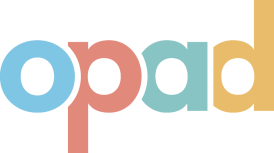
OPAD’s experts apply unique user-centred models and approaches that improve health systems; provide an evidence-base for health policy and programme reform; and address governance challenges that create barriers to healthcare.
OPAD design and deliver engaging activations that focus on consumer health and wellbeing via online and offline platforms such as schools & universities, malls, corporate events & digital media. We engage Health Care Professionals such as Health Extension Workers, doctors, nurses and LHW and provide them with leading edge info on diagnostic and therapeutic advances via in-person training and online peer education. We collaborate with Corporate & NGO Partners to promote health awareness, conduct medical screenings, deliver consultations and provide access to prescription medicines for low-income, high-risk and underserved communities while building the capacity of local frontline health workers.
OPAD Program is dedicated to ensuring the overall health and well-being of children by ensuring the health of their parents and by strengthening community resilience. We focus on particularly underserved areas of the global south
Our Program invests primarily in:

OPAD Strengthening the legal response to HIV and AIDS in developing nations; fostering awareness of public health goals and human rights among government officials, and among those communities most at risk of HIV infection; and building lawmakers’ capacity for reform based on evidence, international law and best practice. Integrating legal empowerment and social accountability for quality HIV health services for adolescent girls and young women.
![]() HIV services for adolescent girls and young women
HIV services for adolescent girls and young women
Adolescent girls and young women account for 71 percent of new HIV infections among young people in sub-Saharan Africa. They are more vulnerable to HIV because they are often subjected to a range of gender and age based biases, discrimination and violence, including sexual assault, forced marriage and tracking. Despite growing HIV-related responses, they and their communities most often do not have the capacity, voice and power to hold these service providers accountable for improved delivery of quality HIV-related services, Empowering communities for improved access to HIV services, build partnership with Global law schools to AIDS response and Advancing rights, ending AIDS Strengthening the HIV AIDS coordination and back up the UNAIDS global goals.


 HIV services for adolescent girls and young women
HIV services for adolescent girls and young women